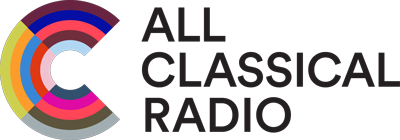During my first week at All Classical Portland, I was able to experience multiple aspects of how the station functions, especially during one of its major fundraisers. Putting faces to the voices I heard during many late nights of studying was a great way to start off my summer at the station.
Sitting in while Jack Allen and Christa Wessel were on air during the fundraiser was especially engaging in seeing how they both coordinated and contributed to one another’s energy, which was audible for listeners. The stunning panoramic view from the second floor of the Hampton Opera Building greatly connects hosts to the city and all that is going on each day. Jack and Christa’s charisma with one other gave volunteers in the adjacent conference room a boost of energy as the phones continued to ring throughout the day. Sharing stories and getting to know those who volunteered during the fundraiser was a great way for me to see how deeply passionate and committed to classical music the community is, as many of the volunteers spent hours answering calls from donors.
Hearing classical music and the voices of on air radio hosts played throughout the office made apparent the connectivity between what listeners are hearing and the staff that creates it.
Meeting Andrea Murray and discussing her show (Northwest Previews), interviewing, audio editing and production were all good starts to my summer of what is sure to be full of great experiences and discussions.
Replying to listener questions during my first day at the station was gratifying since many of them replied back and found the provided information helpful to them. I was also able to learn a lot about The Score, its Facebook page and website as well as Club Mod, which will be invaluable for me throughout the rest of the summer.
Getting my picture taken at the Rose Festival Parade with Governor Kate Brown along with other members of the station was a major highlight of my first week at All Classical Portland.
It was exciting to see how many people knew about the station and recognized their favorite radio hosts. Hearing shouts of “Edmund Stone I love your show!” and “I love All Classical!” were many of the comments heard from a diverse range of excited spectators.
The classic cars and throng of energetic supporters heightened All Classical Portland’s presence in the parade and was noticed by many in attendance, especially many of the parade’s announcers who knew the station and its hosts.
The station’s participation in the parade also represented a post-modern example that there doesn’t have to be a distinction between “high art” and pop culture: people can enjoy and experience both.
Marching to the familiar cinematic tunes of “Indiana Jones,” “Star Wars,” and other popular, well known classical pieces reinforced the notion that classical music is fun and should be enjoyed by all.
Overall, my first week at All Classical Portland was a great one and I look forward to many more this summer.











